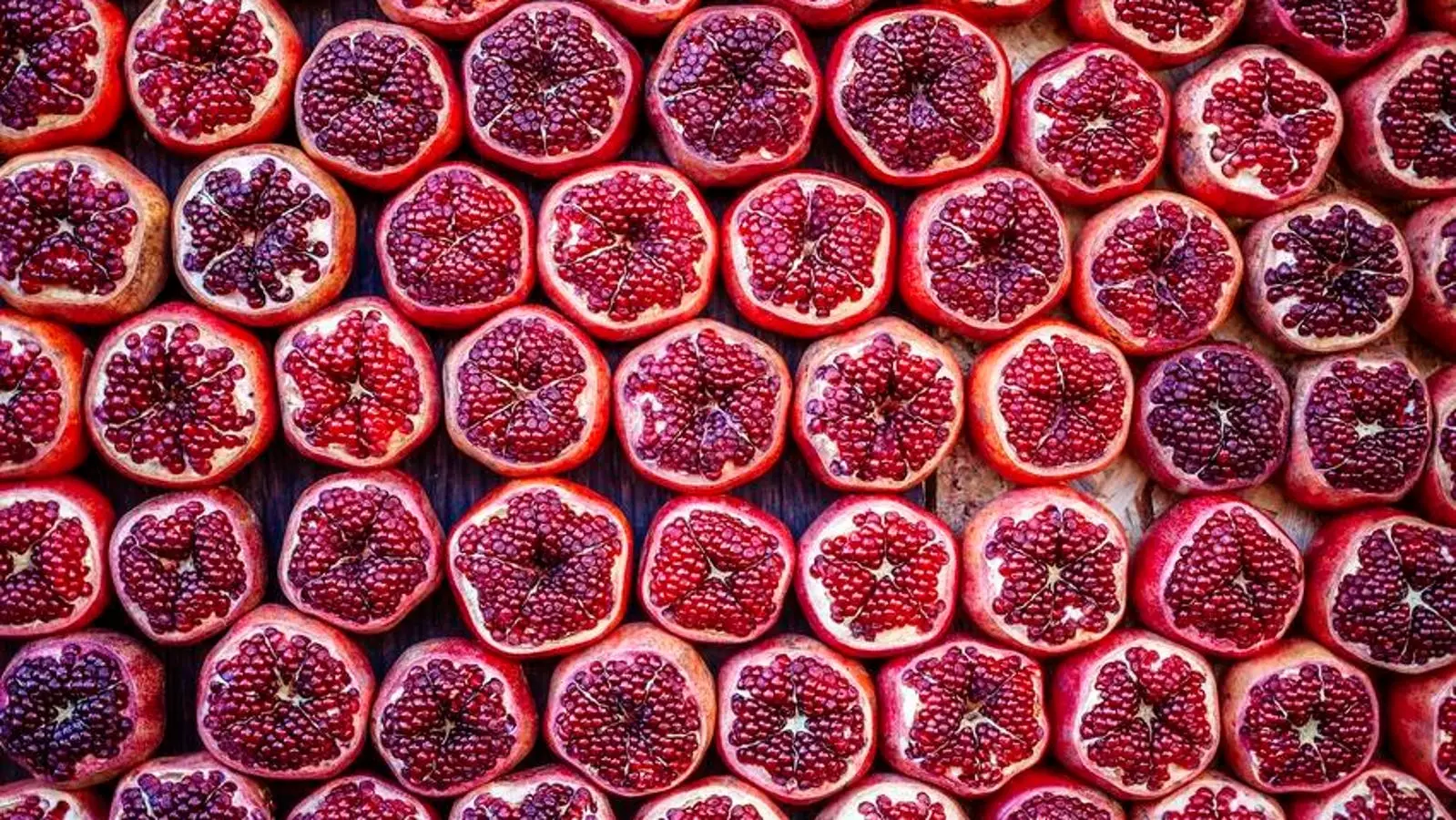Once celebrated in ancient myths and often depicted in artistic representations, the pomegranate has emerged from the annals of history to reclaim its place in contemporary food culture. This vibrant fruit is not only a nutritional powerhouse but has also played a significant role in culinary innovations and social media trends, particularly as a superfood champion. As interest in pomegranates peaks, countries with rich agricultural heritages are eager to expand their production capabilities, and Azerbaijan stands out as a notable contender.
In the South Caucasus, Azerbaijan has cultivated a unique identity linked to the pomegranate—known locally as “nar.” Sown within the rich tapestry of its folklore and gastronomy, the pomegranate symbolizes abundance, fertility, and renewal across the region. During a recent visit to Azerbaijan, I experienced firsthand how this fruit embodies the resilience and cultural heritage of a nation still healing from the wounds of conflict. Amid the remnants of strife in Nagorno-Karabakh, thriving pomegranate orchards painted a picture of hope and perseverance, revealing a powerful metaphor that echoes through the landscape: life endures.
The Goychay Region: A Global Powerhouse for Quality
While many nations grow pomegranates, the Azerbaijani varieties are rumored to possess flavor profiles that set them apart on the global stage. The Goychay region is particularly renowned for its pomegranates, thanks to its microclimate and mineral-rich soil that create optimal growing conditions. The sheer diversity of pomegranate varieties, which exceeds 200, ensures a broad spectrum of flavors, colors, and textures. This complexity nurtures a culture of culinary experimentation that sees pomegranates celebrated not just on dinner plates but integrated into traditional practices, home remedies, and even national festivals.
Feride Buyuran, the author of a cookbook focusing on Azerbaijani cuisine, extols the virtues of Goychay as a “paradise for pomegranate enthusiasts.” Here, the fruit blooms in dozens of varieties—each with a unique taste ranging from tangy to sweet. This commitment to quality is illuminated by the tradition of hand harvesting, where farmers prioritize the fruit’s ripeness and flavor over mere productivity. Such artisanal practices not only foster superior tastes but also reflect a deep cultural appreciation for the fruit that feeds both body and soul.
Culinary Innovations and Global Demand
The rise of the pomegranate in popular culture is evidenced by its adaptation into an array of contemporary recipes ranging from fresh juices to innovative desserts. In a world increasingly obsessed with aesthetics, pomegranate seeds—the so-called “jewels of the fruit”—add texture and vibrancy to dishes and are ideal for TikTok culinary trends. The fruit’s functionality and visual appeal merge seamlessly, catering to an audience eager for both health benefits and an Instagram-worthy presentation.
Beyond trends, consumers today increasingly seek ingredients that offer narratives—stories steeped in tradition, culture, and authenticity. The pomegranate narrative in Azerbaijan resonates with these desires, providing a genuine connection to land and heritage. Unlike mass-produced commodities flooding the market, Azerbaijani pomegranates symbolize a conscientious shift toward artisanal and ancestral food practices.
The Goychay Pomegranate Festival: A Celebration of Culture and Identity
Every autumn, the Goychay Pomegranate Festival serves as a vibrant celebration of Azerbaijan’s culinary heritage, drawing thousands both locally and internationally. This festival is not merely about reveling in the fruit itself; it invites participants to engage with traditional customs, folklore, and diverse culinary practices. From folk dances to cooking contests showcasing the versatility of pomegranates, the festival encapsulates the importance of community spirit and national pride in the face of adversity.
Recognized by UNESCO as an Intangible Cultural Heritage, the festival highlights Azerbaijan’s rich agricultural legacy while reinforcing the deep cultural meanings associated with the pomegranate. This celebration of the “king of fruits” serves as a reminder of the restorative power of food and culture in uniting people—even in regions marked by discord.
A Promising Future Amidst Challenges
As the global demand for pomegranates expands, Azerbaijan is poised to carve out its niche in a thriving market. With 2025 showing a notable increase in exports, Azerbaijani farmers are adapting to modern demand while remaining true to their heritage. The country is steadily positioning itself for growth, not only in fresh fruit but also in value-added products like juices and natural extracts.
A focus on sustainability and high-quality production techniques could place Azerbaijan at the forefront of the health food revolution. The juxtaposition of its rich agricultural history with modern innovations sets the stage for a fruitful future. The pomegranate’s journey from a mystical symbol to a marketable superfood reflects broader trends where consumers increasingly favor depth, authenticity, and craftsmanship over mere convenience. In a landscape where so many products are homogenized, the narrative woven through Azerbaijan’s pomegranates offers a refreshing change, celebrating not just taste but connection—a legacy that is as rich as the ruby-red seeds themselves.


Leave a Reply